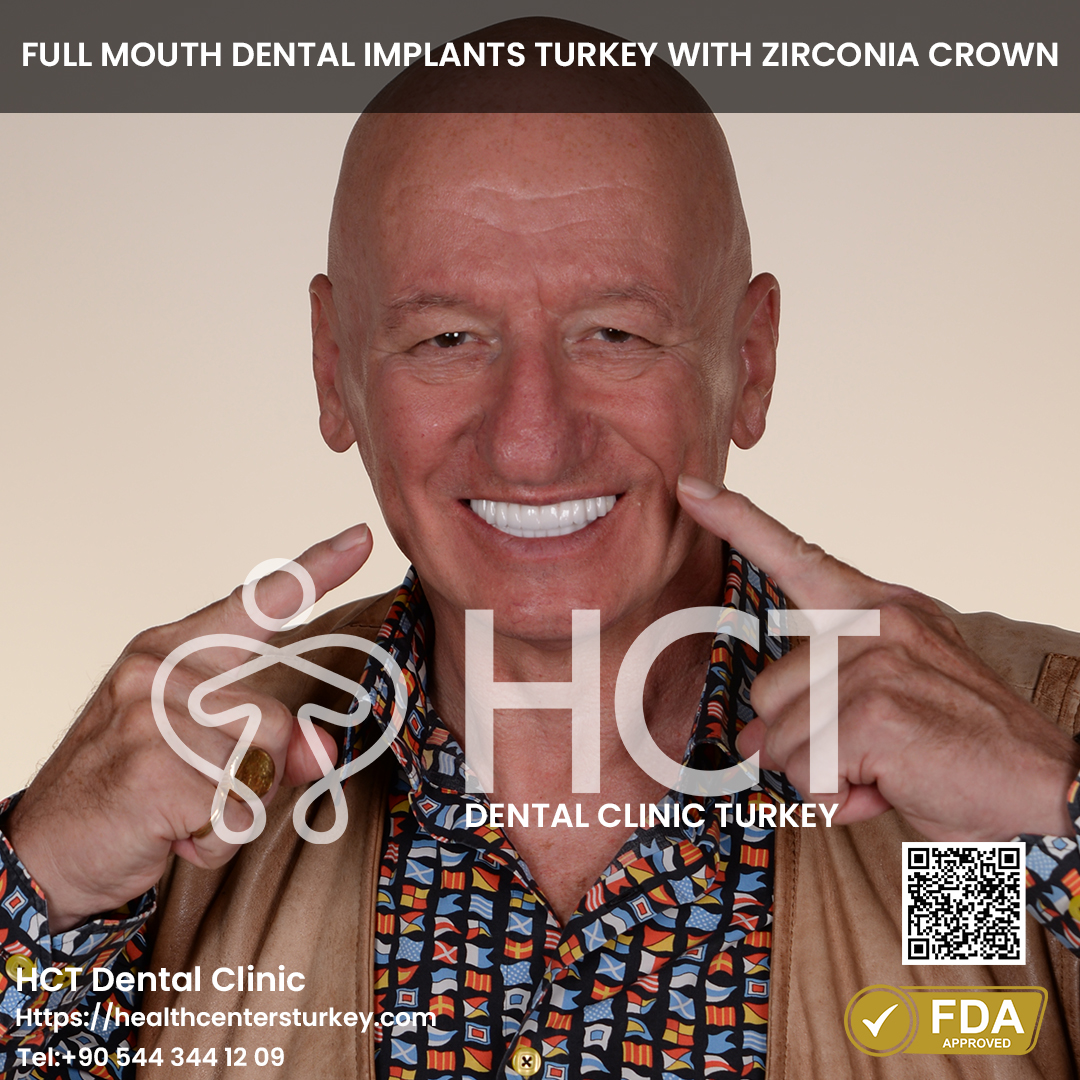Navigating Dental Clinics in Turkey
Navigating Dental Clinics in Turkey
Blog Article
Everything You Need to Know about Dental Procedures in Turkey

Dental implants have become a focus in trendy dentistry, providing a reliable resolution for these facing tooth loss. Among the multiple advantages they provide, one significant facet price considering is their impression on adjacent teeth. Understanding how dental implants affect surrounding teeth aids in making knowledgeable decisions about oral health.
When a tooth is lost, neighboring teeth can easily shift toward the house left behind. This movement can result in misalignment, which compromises the general chunk and function of the mouth. Dental implants mimic natural tooth roots, thereby sustaining the position of adjacent teeth.
Discover Highly Regarded Dental Clinics in Turkey
The stability provided by an implant is essential, because it helps in preserving not just the bodily alignment but additionally the structural integrity of the jawbone. When a tooth is missing, the underlying bone can start to deteriorate as a outcome of lack of stimulation. An implant exerts pressure on the bone during chewing, much like a natural tooth, which promotes bone health.
In some cases, a bridge or partial denture may be thought of as an alternative to implants. While these options might restore some performance, they can place further stress on neighboring teeth. Bridges normally require submitting down the surrounding teeth to accommodate the anchors, thereby affecting their health over time. Dental implants, however, don't alter current teeth, making them a more conservative choice.
Discover Cost-effective Dental Services in Turkey
Hygiene becomes another critical issue when considering adjacent teeth in the context of implants. With dental implants, the individual can keep an everyday hygiene routine much like natural teeth. Flossing and brushing across the implant are simple, guaranteeing that the gum tissue stays healthy and minimizing the danger of gum disease that would adversely affect adjacent teeth.
Moreover, the materials used in dental implants are biocompatible. This means they're designed to integrate properly with the physique, lowering the possibilities of an opposed reaction. This attribute not only makes the implant safe but in addition protects nearby teeth from potential issues that would come up as a result of contamination or infection.
In terms of aesthetics, dental implants offer a natural look and feel, intently resembling unique teeth. Adjacent teeth benefit from this aesthetic attraction as properly. When an implant is placed, the encompassing gum tissue could be shaped to mimic natural contours, thereby enhancing the overall appearance of the smile. This aesthetic factor can encourage individuals to spend money on their oral care routines, benefiting both the implants and adjacent teeth in the long run.
All-Inclusive Dental Packages Featuring Cosmetic Options
Another concern is the potential for gum disease, which may affect the health of adjacent teeth. Gum disease can happen when plaque builds up around teeth and implants. Regular dental visits and applicable oral hygiene can mitigate this concern. The presence of implants can also serve as a motivator for better dental hygiene practices, as individuals become useful site more conscious of sustaining their overall mouth health.
Studies have shown that dental implants can contribute to a major enchancment in quality of life. Patients typically expertise increased confidence and are less hesitant to smile or engage in social interactions. A healthy and well-maintained smile not directly promotes higher take care of adjacent teeth, as individuals are most likely to become more conscious of their total oral hygiene.
One often-overlooked facet is the psychological impact of dental implants on patients. Knowing that implants provide long-term options can ease the anxiety related to tooth loss. With fewer worries about future tooth shifts, sufferers usually tend to make investments effort and time into caring for their teeth, which includes adjacent teeth.
In conclusion, dental implants serve as more than only a solution for missing teeth; they play a pivotal function in maintaining the health and integrity of adjacent teeth. From stopping misalignment to selling gum health and enhancing aesthetics, the benefits are manifold. By choosing implants, individuals can't only restore performance but in addition foster a healthier oral surroundings for surrounding teeth. The psychological and aesthetic benefits additional contribute to an general enhanced quality of life.
Transform Your Oral Health with Veneers
In the long run, understanding how dental implants have an result on adjacent teeth can guide people in making empowered choices concerning their dental health. The integration of these implants into the mouth acts as a stabilizing drive, safeguarding both the bodily alignment and functionality of neighboring teeth, whereas promoting a long-lasting, healthy smile.
- Dental implants usually don't exert pressure on adjacent teeth, sustaining their integrity and lowering the danger of shifting or misalignment.
- The placement of an implant usually encourages better oral hygiene habits, positively influencing the health of adjacent teeth via improved cleansing practices.
Personalized Smile Solutions in Turkey
- In some cases, dental implants can stimulate the encircling bone, which helps preserve the natural teeth's position and total dental structure.

- The hole left by missing teeth can lead to bone loss; dental implants can prevent this, thereby protecting adjacent teeth from potential issues.
- this Health Tourism: Enjoy Affordable Care in Turkey
Reliable Orthodontic Treatments available in Turkey
- By restoring the function of a missing tooth, implants help distribute chew forces evenly, lowering put on and stress on neighboring teeth.

- Properly placed dental implants can act as a help structure, preventing unwanted movement of adjacent teeth resulting from tooth loss.
- The presence of an implant may enhance the aesthetic appearance of surrounding teeth by filling in gaps and supporting facial structure.
The Hub for Quality Dental Care at Low Costs
- Dental implants eliminate the necessity for adjacent teeth alteration, in distinction to bridges, which require reshaping the close by teeth for assist.
- Implants additionally scale back the danger of gum disease compared to other tooth replacement options, not directly benefiting adjacent teeth by promoting total oral health.
Enhance Your Dental Aesthetics with Affordable Options in Turkey.
- Long-term success of dental implants is linked to the health of surrounding teeth, emphasizing the importance of regular dental check-ups and maintenance.
How do dental implants affect adjacent teeth?
Exceptional Teeth Clinics Accessible to International Patients in Turkey
What are dental implants and how do they work with adjacent teeth?undefinedDental implants are artificial tooth roots placed into the jawbone to support replacement teeth. They don’t have an effect on adjacent teeth instantly, as they're unbiased buildings. Instead, they can help maintain the integrity of surrounding teeth by stopping bone loss.
Can dental implants trigger injury to adjacent teeth?undefinedIf placed correctly, dental implants mustn't hurt adjacent teeth. However, improper placement can lead to issues like misalignment or pressure, emphasizing the significance of selecting an experienced dental professional.
Will dental implants promote bone development round adjacent teeth?undefinedYes, dental implants help stimulate the jawbone, which can encourage bone development. This can benefit adjacent teeth by maintaining bone density and stability within the area.
High-quality Porcelain Veneers for a Stunning Smile in Turkey
Should I fear about gum disease affecting adjacent teeth after getting an implant?undefinedGood oral hygiene is crucial after getting an implant. Gum disease can still affect adjacent teeth, however a properly maintained implant doesn't enhance that risk. Regular dental visits might help monitor and maintain gum health.
What occurs to adjacent teeth if I lose a dental implant?undefinedIf a dental implant fails or is misplaced, adjacent teeth may shift as a result of adjustments in chew alignment and support structure. This may lead to misalignment or additional tooth loss if not addressed.
Are there any particular care requirements for adjacent teeth after getting implants?undefinedMaintaining good oral hygiene practices, together with regular brushing, flossing, and dental check-ups, is essential for each dental implants and adjacent teeth to stop decay and gum disease.
Top-Quality Dental Facilities designed for Tourists in Turkey
Do dental implants help assist adjacent teeth when chewing?undefinedAbsolutely. Implants can improve total chew function, which might alleviate stress on adjacent teeth during chewing. This can result in better distribution of forces, selling oral health.
How can I prevent problems with adjacent teeth and implants?undefinedConsistent dental care, together with professional cleanings and examinations, common brushing and flossing, and following your dentist’s aftercare instructions, are key to stopping problems.
Can adjacent teeth transfer if I truly have a dental implant?undefinedAdjacent teeth could move if they aren't well-supported, particularly after tooth loss. A dental implant helps maintain the structure, lowering the risk of shifting teeth. Report this page